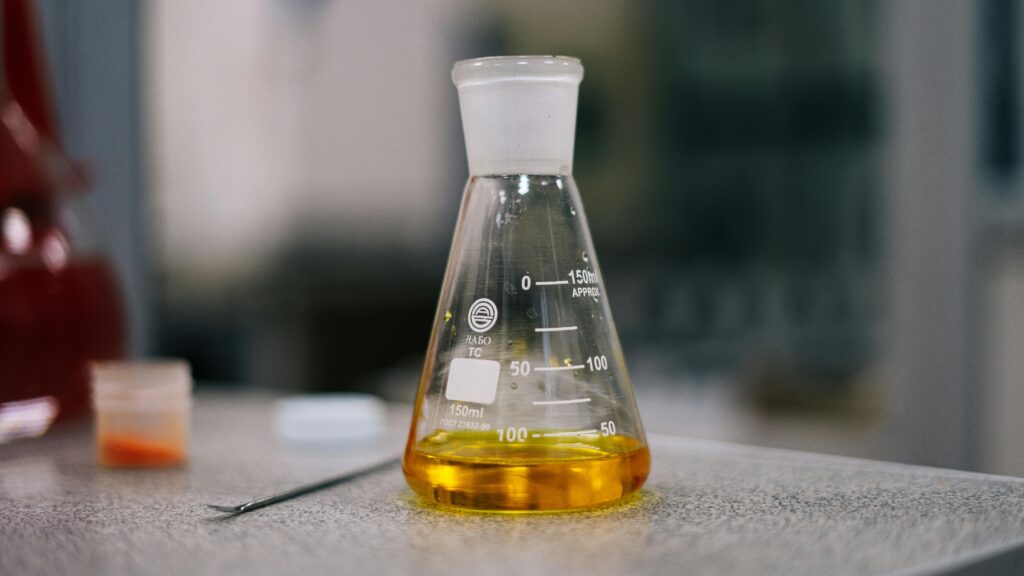
Regulations around resins and adhesives are getting stricter worldwide and are raising the standards for the panel industry. Companies are currently stepping away from traditional adhesives and resins containing high levels of Urea formaldehyde to comply with new standards.
ULEF – is it truly a better solution?
One alternative that companies have turned to is “Low-emitting Formaldehyde” (ULEF) binders. Claimed to promote better indoor air quality, these binders are formulated to emit significantly lower levels of formaldehyde than what the EPA requires. However, they still contain the harmful chemical compound, and the negative health effects of it can build up over time.
So, what adhesives and binders are panel manufacturers using to ultimately claim “NAF – No Added Formaldehyde”?
The most common method, predominantly used in plywood and OSB, is using MDI-based binders. Methylene Diphenyl Diisocyanate (MDI) is a chemical compound made of two different isocyanates. It eliminates formaldehyde off-gassing, enabling companies to claim “No Added Formaldehyde”. However, MDI is toxic to humans and has been known to cause asthma, lung damage, and other fatal reactions, according to the EPA.
Other solutions that have been explored are soy-based binders made from soy flour and lignin-based, such as Stora Enso’s NeoLigno®. These bio-based binders are taking a greener approach to “NAF” as they are derived from earth’s natural resources and are devoid of chemical compounds. Using bio-based binders promotes better indoor air quality and product recyclability.
As regulations tighten and awareness grows, the panel industry stands at a crossroads. ULEF and MDI-based solutions may meet current standards, but they still carry health and environmental risks that can’t be ignored. Bio-based binders like soy and lignin offer a glimpse into a cleaner, more sustainable future.
At ECOR, we encourage other businesses to find innovative solutions to tackle pressing environmental and social matters. We pride ourselves on strategically partnering with players that not only promote sustainability but also create real-world impact. That is why ECOR Global has partnered with Stora Enso to create a groundbreaking bio-based panel that is both formaldehyde-free and fully recyclable. This panel offers brands and manufacturers of furniture, cabinetry, and exhibition materials a greener, recyclable alternative to wood composites, while also promoting health responsibility.
Sources:
https://www.epa.gov/sites/default/files/2015-09/documents/mdi.pdf
https://www.fpl.fs.usda.gov/documnts/pdf2014/fpl_2014_frihart004.pdf